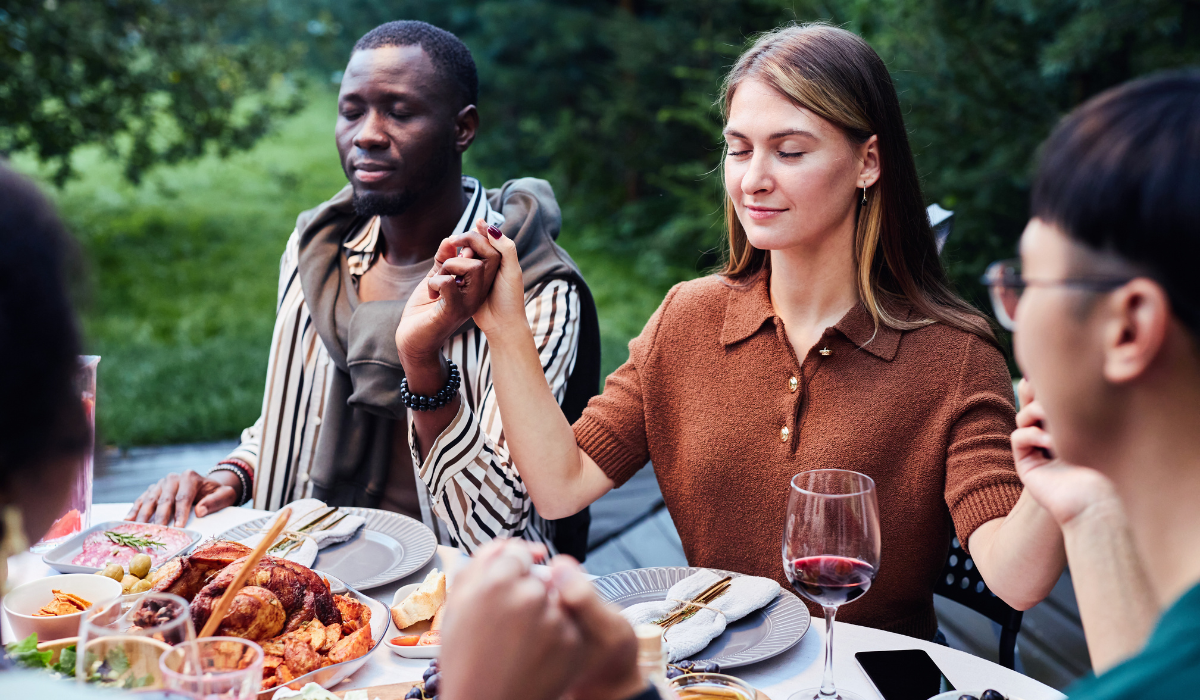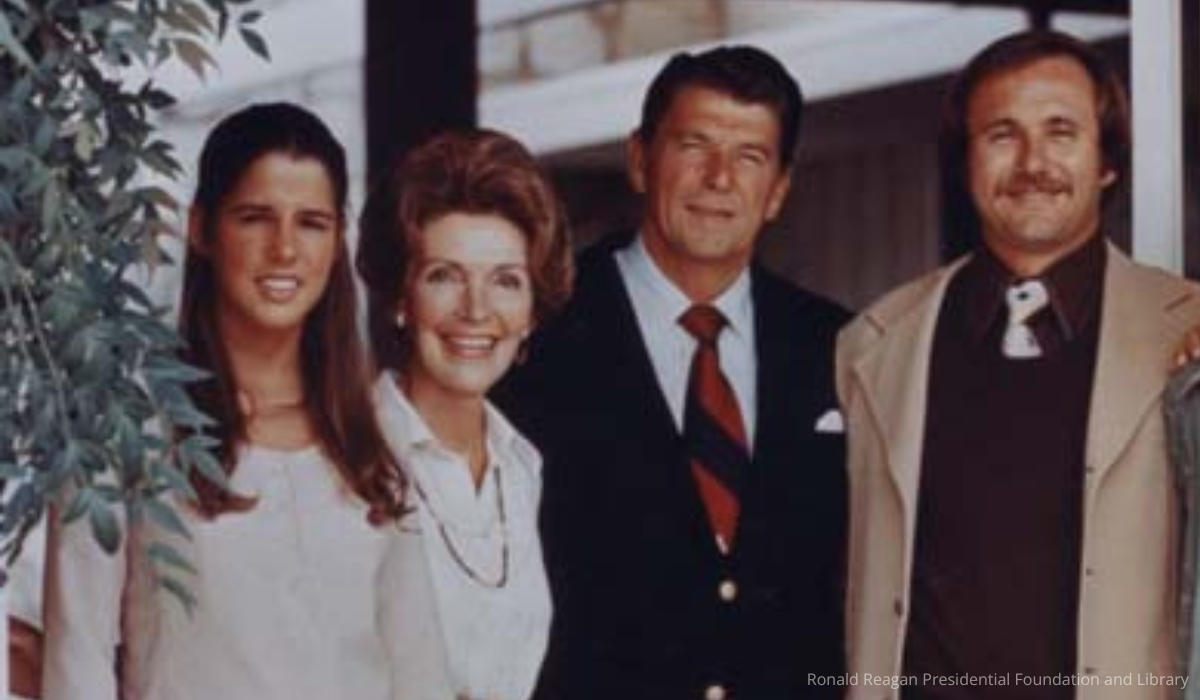Worried About Conflict Around Your Holiday Table?

We’re watching a very public rupture play out on the political stage right now. Fractures within the MAGA “family” and deepening divides between those on both sides of the aisle continue to make front-page news. Watching it all play out can feel unsettling, as it can shine a light on something many of us may be experiencing in our own lives: relationships that feel strained and conversations that seem impossible.
That’s why therapist and bestselling author Julie Menanno says now is the time to understand the concepts of rupture and repair. Because every relationship will experience moments of rupture. Trying to avoid the conflict isn’t the goal. Instead, learning to better navigate these ruptures and work to repair them is where true growth happens.
This week, The Sunday Paper sat down with Menanno to learn more about these key concepts and what all of us can do to find our way back to one another.
A CONVERSATION WITH JULIE MENANNO
You say all close relationships include rupture and repair. Can you describe these concepts?
The concept starts with the fact that we are wired for emotional safety in our relationships. That’s what attachment security is—it’s a felt sense of safety in your body. It exists in your nervous system.
Now, how do we get to that feeling of safety? Meeting each other’s attachment needs. It could be in an interaction, or it could be in the global climate. For example, when we’re interacting with our partner and we’re feeling heard, seen, understood, emotionally validated and appreciated, we feel safe. If we don’t feel these things, the nervous system is going to respond, and it’s going to feel pain and tension. Then, based on your attachment style and the way you’ve learned to communicate in the world, you will react in some sort of way to stay safe.
People who are secure with their own selves and their own emotions, and secure in the relationship, are more likely to be vulnerable and to be able to assert what’s going on with them without attacking or shutting down. There are other, insecure attachment styles that are going to respond to that pain and disconnection in not so healthy ways, and this can create a rupture.
The problem is that many of us don’t know how to deal with rupture. We don’t grow up in homes where we’re learning how to work through these and get back to safety. We think, “Well, that’ll never happen again.” Or maybe, “We’re going to try harder.” But we don’t know how.
To repair, we have to get back to a state of emotional safety. We have to work through that by communicating our own pain and responding to each other in a way that says, “I hear you. I understand you. Help me understand how that impacted you.” As you practice this, your nervous system rewires and these skills become more intuitive.
You also say rupture and repair is what helps us grow in relationships …
How do you learn these skills needed to repair if you don’t have ruptures? Relationships must have ruptures to grow.
Now, we don’t want ruptures to overwhelm the relationship. We don’t want so many ruptures that we can’t keep up with the repair. But we do need ruptures in order to grow as humans—to learn how to deal with our own feelings in better ways and in ways that adds to the safety we feel in our relationships.
It’s important to note that some couples need a lot of structure around these reparative conversations. If you notice you’re trying to repair and then you go into a negative cycle around the repair, that makes things tricky. I like to give couples a structure: One person is in the caregiving role, the other person is in the care receiving role. The caregiver’s only job is to reflect, validate, support, comfort, and trust that they’re going to get their needs met later. Then, they switch roles.
Happy couples fight. But they also know how to repair. And because they know how to repair, they fight less.
We’re watching a very public rupture within the MAGA political “family.” What do you see playing out there—and what can all of us learn from it?
Everybody has different perspectives on this, but I’m going to break it down from a communication standpoint. Because that’s the first problem, right? What we’re seeing is politicians attacking one another. This leaves people feeling really unsafe. Nobody responds well to feeling disrespected. When you have two people who communicate without respect, you can’t possibly collaborate.
You can put yourself in a bubble with people that you agree with, but eventually, if you don’t know how to communicate through differences, the differences are going to find you. The cure for it is for people to learn how to communicate through differences with respect, which helps lead to emotional safety. I don’t know if people can come together policy wise, but I know that the starting point is clean communication.
We’re heading into the holidays, which means we may be seeing family members with whom there have been ruptures. How can we navigate this?
The first thing to understand is that there are some people who aren’t emotionally safe and will never feel emotionally safe. And if you try to repair a rupture with that person, you’re probably not going to get a good response. You have to really be intentional about your goal. And if your goal is to speak your truth, you may just need to do it. That said, I don’t think a group setting at a holiday is necessarily the right time for that. For me, when we come together for a holiday, the focus should be on connection.
Now, connecting can be done through disagreement. You can be curious and try to understand where someone is coming from without agreeing with them, and without avoiding topics that have any depth whatsoever. But understand you’re not going to get anywhere if you don’t have emotional safety.
So, start there. Lean in, be curious, listen, and try to understand. What I have found is that this creates open nervous systems. And when people have open nervous systems, they’re reasonable, they’re more likely to ask themselves, “Do I really believe this, or am I coming from a place of fear and shame?”
What’s one tool you want readers to use in tough conversations around the dinner table?
Lead with your own emotional safety. Lead with understanding. Try to really listen. My mother-in-law was an expert at this. She had 13 kids, so you can imagine how much disagreement there was in the house. She learned to say, “That’s interesting. Tell me how you came to see it that way.”
We may all disagree on the solution to a problem, but there’s a good chance we all feel angry or scared. There’s so much shared experience that we can lean into. But instead, we lean into the disconnecting points.
So, start by leaning in. What you might find is that the other person leans in, too.
Julie Menanno MA, LMFT, LCPC, is a licensed marriage and family therapist who provides insight and advice for couples at @TheSecureRelationship on Instagram, with over one million followers. She founded and runs the Bozeman Therapy & Counseling clinic, and The Secure Relationship Coaching. She lives in Bozeman, Montana, with her husband and six children.
Please note that we may receive affiliate commissions from the sales of linked products.



